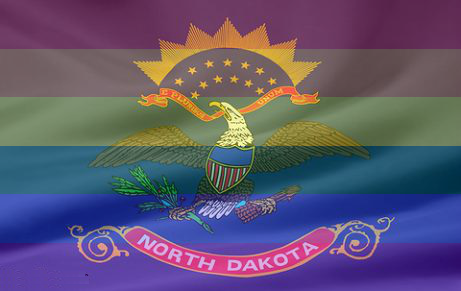John Trandem: North Dakota Got It Right On Discrimination Law

Recent headlines, cartoons, and LTE submissions supporting SB-2279 seem to follow a common tactic with regard to debate. That is, opponents cite issues with the language, scope, and unintended consequences of the bill itself, while proponents cite issues with the opponents. Even local Editorial Boards followed this fatally flawed template. Questions were posed regarding protections in the bill which would prevent non-LGBTQ individuals from accessing opposite-sex common changing areas to watch women and girls in various stages of undress while undressed. The answer; no such protections exist.
That knowledge would have allowed readers to make up their own mind as to whether they felt such protections were warranted or if the lack of similar protections was an unintended consequence they could live with. Rather than providing an honest answer to a legitimate question, the response was to discredit the question as a “shameful canard” and suggest that it was borne of “anti-gay bias”.
Others answered that predators can already do so in same-sex changing areas, (as though that should rationalize affording them greater and protected access), or wrongly suggested that homosexuals were being compared to sex-offenders. The notion that bias exists, whether true or false, should not prevent reasonable people from discussing concerns over public policy. If the concerns are not warranted, it can be demonstrated without resorting to personal attacks.
[mks_pullquote align=”right” width=”300″ size=”24″ bg_color=”#000000″ txt_color=”#ffffff”] Our great state has a storied and unparalleled history of getting it right, and SB-2279 is no exception.[/mks_pullquote]
Another area of confusion was the language of the bill itself. Again, when asked why, in the interest of avoiding unintended consequences, the bill didn’t simply read, “It shall hereby be deemed illegal to refuse to hire, to fire, to refuse to rent to, or to evict an individual because of his or her sexual preference or identity”- the response was to question the motives of the person who asked and make allegations about bigotry and fear.
An inexorable concern of opponents was the standard upon which a lawsuit could be generated. We spent much of last year debating the false premise that Measure 1 would tie up the courts with lawsuits against doctors who had forced people to undergo unwanted life-saving treatments; and among other misleading claims, this notion caused the measure to be defeated. A Constitutional Amendment in and of itself is not grounds for a lawsuit, but the mere, albeit false suggestion that it was, led to widespread panic.
In the case of SB-2279, the perception of discrimination, not clearly demonstrable discrimination, would be grounds to file suit against an employer, landlord, me, or you. Why was the prospect of tying up the courts with lawsuits a non-factor in this debate? Because anyone who brought it up was quickly and decisively subdued.
Finally, there was testimony provided by individuals who made claims that they had faced discrimination, but there was no corroborating evidence, no perpetrators were named, and no proof was provided. It isn’t beyond the realm of reason that this discrimination may well have taken place, but with the current climate, it is unlikely that if it was a widespread problem, we would not only know about it, but we would see the perpetrators names and companies plastered all over the front page every day.
When the bill reached the floor and a vote was imminent, testimony took a very unfortunate turn as legislators suggested it should be passed because ‘it is what Jesus would do’. Reciting cherry-picked bits of Holy Scripture in the interest of advancing an agenda is offensive enough on its face, but doing so as a matter of creating public policy is something I have never before seen in ND, and hope to never see again. The notion that you cannot oppose a bad piece of legislation without holding a contrary view to its stated goal is beyond ridiculous and offends the very senses of a thinking individual. An objective look at the effects of a discriminatory policy in business demonstrates that it is the proprietor who will ultimately pay the price. As a business-owner and landlord I have never attempted to discern the sexual habits of my customers or tenants because it really doesn’t matter to me. I care about whether or not they can pay their bill and treat them all with respect as God’s creation.
Should it be illegal to discriminate against people for their sexual preference? Should it be illegal to discriminate against somebody because they disagree with you? In the arena of ideas we owe ourselves and our fellow citizens a much more thoughtful look at the propriety and efficacy of every piece of legislation in North Dakota. Our great state has a storied and unparalleled history of getting it right, and SB-2279 is no exception.




